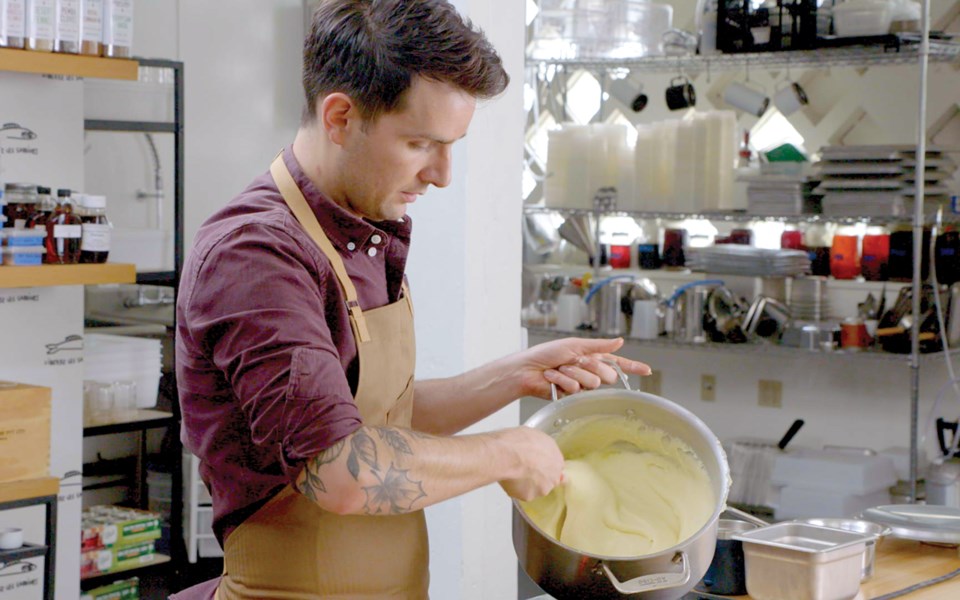Visit any high-end restaurant worth its salt and you won’t need much convincing that cooking is indeed an art form. But the not-so-secret secret behind our favourite dishes lies in science, not creativity.
That’s the revelation Toronto filmmaker Leora Eisen came to early in the pandemic when her daughter jumped headlong into the sourdough craze like so many other homebound home cooks.
“The whole sourdough thing just mystified me. Why are people obsessed with this mix of flour and water? It didn’t make sense,” said Eisen. “I did see this dough sort of magically grow after a couple of days of TLC. She was obsessed, like every sourdough baker has to be. I thought, ‘Why is it growing? What’s going on in there?’”
Eisen’s curiosity was piqued by something that had previously seemed so quotidian to her. But it spoke to something a lot of us can relate to when it comes to cooking: we may understand how a dish gets made, but haven’t the faintest idea why we’re doing what we do to get there.
A documentarian who is no stranger to the culinary world, Eisen was surprised at the dearth of films that delved into the science behind the things we cook. So she pitched her idea to CBC’s long-running series, The Nature of Things, and her new film, Chef Secrets: The Science of Cooking was born.
“I first thought of this at the beginning of the first lockdown. It has forced us to think more about cooking because we’ve been home and some of us have slowed down our busy lives,” she relayed. “I’m starting to appreciate more that you don’t have to be a culinary artist to be a good cook. If you actually think about what you’re doing, you’ll enjoy it more.”
Chef Secrets features a diverse lineup of chefs and culinary scientists breaking down some of our favourite dishes. There’s ice cream scientist Maya Warren; Vanessa Kimbell, Britain’s proclaimed “Queen of Sourdough”; Rice University professor Lesa Tran Lu, who teaches chemistry through cooking; and Ali Bouzari, a culinary consultant with “a PhD in mashed potatoes.”
“My mashed potatoes, frankly, suck,” Eisen admitted. “I now know that pounding with a hand masher is not the secret to creamier potatoes, but neither is sticking them in a Cuisinart. Because I now understand the chemistry of the potato when it interacts with heat. So now I know, ‘OK, I’m better off using some kind of a sieve or a mesh strainer.’ It takes longer but your potatoes will be better if you like them creamy.”
Chef Secrets includes a segment from B.C. with Wet’suwet’en Nation chef Andrew George as he connects with his mom and son and they smoke salmon the traditional way.
“It’s all based on sustainability, reading the season, and the science of smoke,” Eisen said. “Now when I eat smoked salmon, I think about it very differently.”
For the less scientifically inclined among us, the thought of having to actually beef up on the subject in the kitchen may induce traumatic flashbacks to Grade 10 chemistry class. But Eisen is clear Chef Secrets is designed for the amateur cook, with practical tips for anyone to make use of. (One she was eager to share that will completely transform your next batch of caramelized onions: add a pinch of baking soda to alter the pH level and your onions will brown much faster.)
“Cooking is all about experimentation and then trying something different, changing the variable, and seeing the outcome,” she said. “So is science.”
Chef Secrets premieres on Jan. 7 as part of CBC’s The Nature of Things. It will be available to stream after that on CBC Gem.





